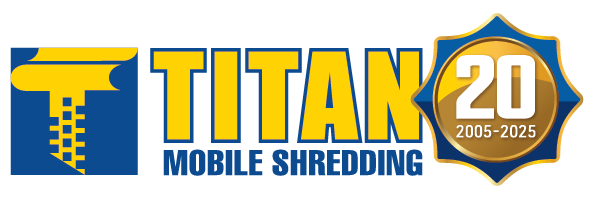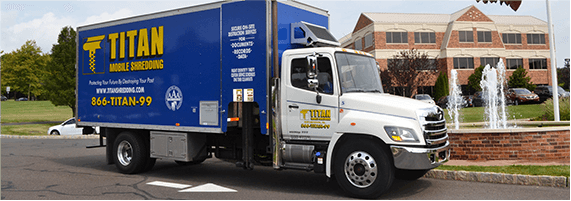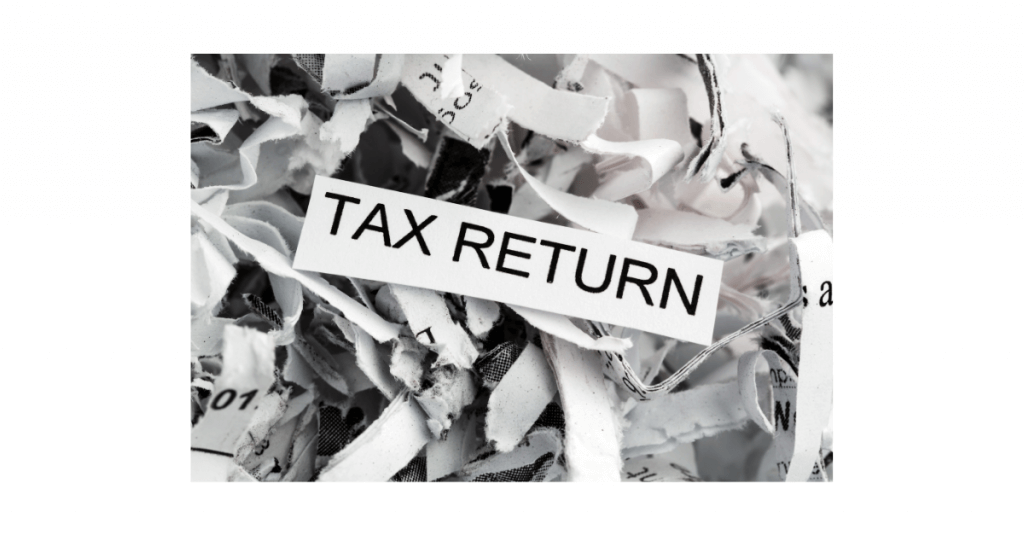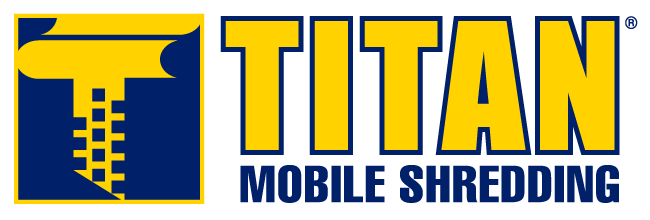Accountants in the Greater Philadelphia Area are entrusted with some of their clients’ most personal data. If you are an accountant, you may have made the switch to mostly electronic data storage. However, there are always some documents in paper form. Sometimes, those papers can accumulate into boxes of old files that need to be properly disposed of. As an NAID AAA Certified Mobile Document Shredding Company, TITAN partners with accountants and other financial institutions to help you remain compliant with regulatory requirements and protect your clients.
Why You Should Shred Rather Than Tear Up or Throw Out
Protect customers: Once you throw something away, it becomes public property and anyone can claim it or use it. Identity thieves have become so sophisticated that they can combine even seemingly innocuous slips of paper (a client’s phone number scrawled on a scrap of paper) with advanced internet searches and clever schemes to eventually acquire access to your clients’ personal data and even their accounts.
Protect yourself and your employees: You and your staff also need to be protected from identity theft by properly disposing of your HR information, photo IDs and security badges, etc.
Comply with the law: There are many federal and state laws that govern consumer protection and privacy, such as Gramm-Leach-Bliley, FACTA, FERPA, EEA, and others. In addition, many professional organizations also have privacy and data handling guidelines. Such organizations include the AICPA, AAA, AAFA, PSTAP, and others.
Save time, space, and money: The fewer boxes of old files you have, the more space you’ll have. By having your files professionally shredded rather than using an office shredder, your staff will spend more time on work that brings in a profit. Your documents will be shredded quickly and much more thoroughly than an office shredder is capable of doing.
What You Should Shred
As suggested above, any office papers that could have been used for client or employee information should be shredded, including slips of paper. Employees working from home must also be very vigilant to keep papers and trash from their financial work separate from home trash and dispose of it properly.
Additional items that should be shredded when their retention period is up:
- Tax documents
- Bank statements and credit card statements
- Voided checks and sales receipts
- Employee pay stubs and employee records
- Sales receipts, invoices, and bills
- Documents containing name, address, phone number, and other contact information
- Documents with a social security number, photo, or account information
- Corporate strategy plans, meeting minutes
- HR records
- Hardware such as hard drives, USB drives, DVDs, and other items containing sensitive data
The retention periods of different documents can vary widely, but once you are no longer required to retain information, it must be disposed of in compliance with appropriate laws.
How We Can Help You
At TITAN, we work together with accountants and other financial professionals to find the right level of service for your particular needs: one-time shredding, regular on-site shredding, or drop-off at our facility. We will also help you determine the best way to ensure that your staff working from home have their items properly shredded. Your staff could deliver their documents to your office, drop them off at one of our locations, or have a shredding truck come to their residence. We will provide you with a Certificate of Destruction for your compliance records once your documents are shredded.
TITAN is locally owned and operated and committed to putting our clients’ needs first. We are the first company in the world to combine document shredding and object shredding services. Contact us to discuss your volume of documents or objects that need destruction. We will partner with you to find the best fit of service for your shredding needs. Call us today at (866)848-2699.




